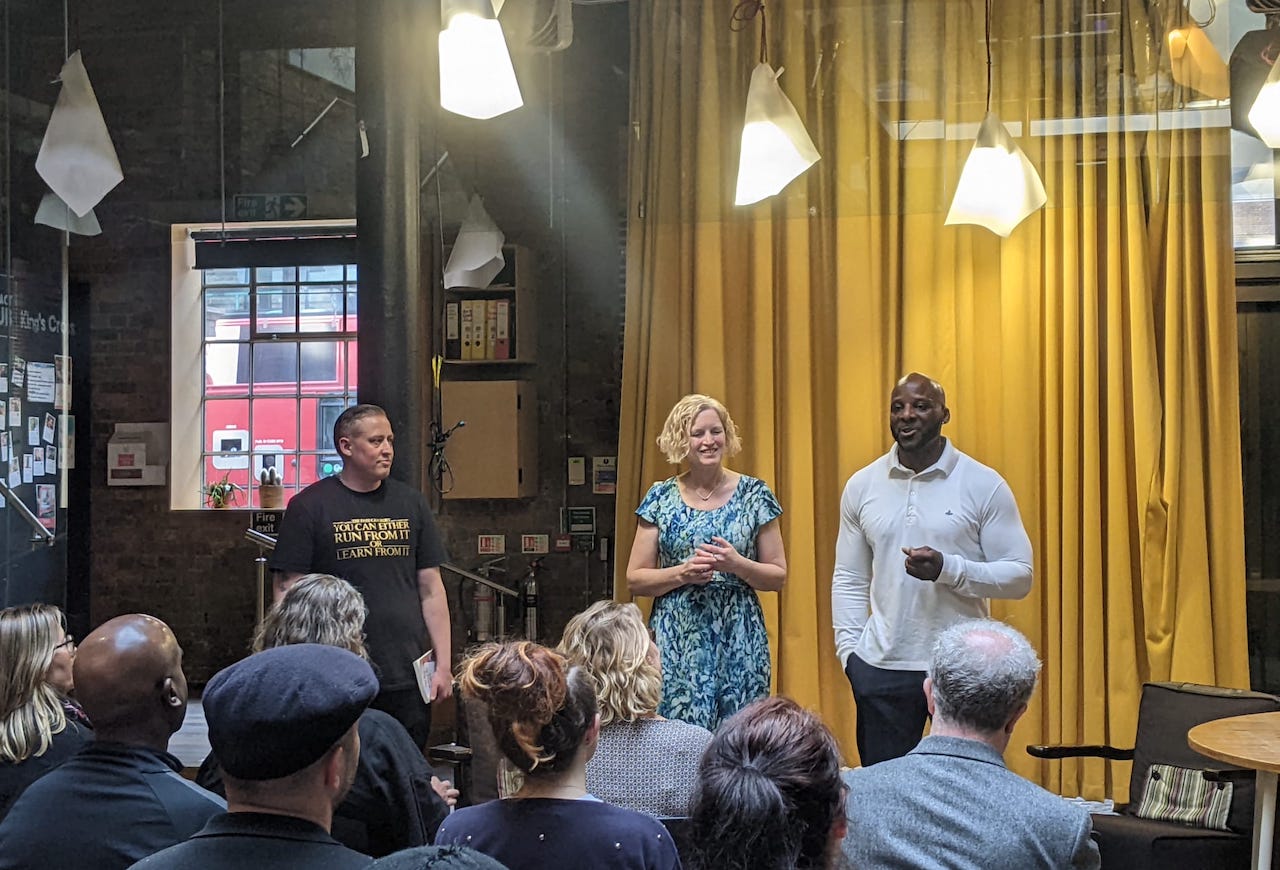The investment has been made via the jointly developed Growth Impact Fund and will help social enterprise Doing What Really Matters in its aim to support 25% of the UK’s prison population into higher education by 2030.

UK-based Big Issue Invest, the social investment arm of the Big Issue Group, publisher of the eponymous street newspaper, and social entrepreneurs foundation UnLtd, have invested £150,000 (€174,000) in Doing What Really Matters (DWRM), a social enterprise working to provide educational support to the UK’s prison population.
The investment, which is the second to be made through the jointly developed Growth Impact Fund, will be used towards achieving DWRM’s goal of supporting 25% of the prison population in the UK, a total of 20,000 people, into further and higher education by 2030.
DWRM, which was set up in 2021 by Dan Whyte, who completed both undergraduate and postgraduate degrees while in prison, and Ruth McFarlane, an educator and practitioner in the prison education field, focuses mainly on higher education degree-level courses.
It provides students with study materials, tuition, helps to engage students by increasing participation in the learning community as well as offers post-release support to enable students to attend university campus and complete their degree after leaving prison.
Speaking from experience Whyte said: “I have had to overcome significant obstacles to achieve my place within the academic community, and I now use this alongside my extensive lived experience to work towards effective systems change within the criminal justice system.
“This is evidenced by what we have been able to accomplish at DWRM within our first three years – changes in policy, contributing to prison staff training and raising aspirations of the prison population.”
Impact Investor recently reported on a social enterprise focused on recruiting ex-prisoners into work, and DWRM also provides support for further education and apprenticeships and works with employers to help former prisoners reintegrate into society.
Lowering reoffending rate
According to 2019 research by the UK’s Ministry of Justice, people who have participated in education whilst in prison are less likely to reoffend within 12 months of release than those who have not by 7.5% points. This translates to a reoffending rate of 32.6% from a baseline one-year reoffending rate of 40.1%.
Despite this, statistical data from the UK’s Department for Education shows the number of prisoners participating in a course equivalent to AS-levels, an advanced qualification taken after the compulsory school age of 16, or above showed a 90% decrease compared to the 2010/11 academic year.
Responding to questions from Impact Investor, McFarlane explained that there were currently only about 1500 students in UK prisons studying at undergraduate level and fewer than 30 studying at postgraduate level.
“This equates to less than 2% of the prison population in England and Wales of over 80,000, compared with over 50% of 17–30-year-olds in the community who participated in higher education in 2017/18,” she said.
McFarlane said the main barriers to education for prisoners in the UK, were the increase in tuition fees, restricted eligibility for student loans for prisoners serving six years or more and limited access to digital technology in prisons, which made many distance learning courses unavailable to students in prison.
“Our provision overcomes this barrier by using secure approved technology from Coracle,” she said. “We support the recommendations of the recent UK Parliament enquiry into prison education (‘Not just another brick in the wall’), which recognises the value of increasing access to higher education and proposes the removal of the ‘six-year rule’ so that prisoners on long sentences can start a degree earlier in their sentence.”
Growth Impact Fund
DWRM is the second investment through the Growth Impact Fund, following investment of £300,000 (€348,000) in April in neurodivergent talent platform Neuropool, which aims to get more than 10,000 neurodivergent people into employment by 2030.
The social impact focused fund which launched in December last year and has raised over £8m of its £25m target, aims to invest in 50-60 early-stage ventures committed to improving their team’s diversity, looking to grow their trading income and tackling inequity in the UK.
Investors in the fund include, among others, Bank of America, Access - The Foundation for Social Investment, the Joseph Rowntree Foundation, Big Society Capital, University of Edinburgh as well as Unltd and Big Issue Invest themselves.
Asked about what attracted the fund managers to DWRM, Sarah Faber, investment director for the fund at Big Issue Invest, said: “The team were strong, and their lived experience of the prison system means that their service is effective at meeting a real need and making a difference. This is important for us from an impact perspective, but also because that creates a stronger financial proposition as the service will continue to be bought and used.”






